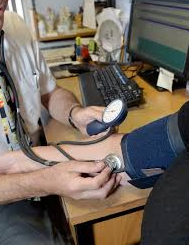
New AI-powered algorithm predicts heart failure risk, offering earlier diagnoses and better treatment options.
Researchers suggest that artificial intelligence (AI) could be key in identifying patients at risk of heart failure, enabling earlier interventions and improved outcomes. An AI algorithm, developed to analyse patient health records, could potentially diagnose heart failure up to two years earlier than traditional methods, giving patients a crucial head start in receiving treatment.
The study, funded by the British Heart Foundation (BHF), used the medical records of over 560,000 UK adults to train the AI, called Find-HF. This algorithm was then tested on a separate database of 106,000 patient records from Taiwan National University Hospital.
The AI was able to accurately predict which patients were most likely to develop heart failure and who might need hospital care within five years. This breakthrough could help general practitioners (GPs) identify high-risk individuals sooner, allowing for timely intervention before the condition progresses.
Professor Chris Gale from Leeds Teaching Hospitals NHS Trust explained, “The data gathered from patients during their healthcare visits provides a unique resource. AI like Find-HF can help bring forward heart failure diagnoses, providing a vital opportunity for effective treatment before the disease advances.”
Currently, more than a million people in the UK suffer from heart failure, a condition that impairs the heart’s ability to circulate blood. Often, heart failure is diagnosed too late, making treatments less effective, particularly for women and older patients.
The research team believes Find-HF could serve as an early warning system for GPs, alerting them to patients who might be at risk. These individuals could then be tested earlier for heart failure, leading to quicker diagnoses and improved treatment outcomes.
Dr Ramesh Nadarajah, a health data research fellow at the University of Leeds, presented the findings at the British Cardiovascular Society Conference, highlighting the potential of AI in revolutionising how heart failure is detected and treated.
Professor Bryan Williams from the BHF stressed the importance of early diagnosis: “Heart failure often isn’t diagnosed until it’s too late, severely affecting patients’ lives. Early diagnosis, aided by AI, will allow for better treatment options and better management of the condition, improving quality of life and potentially preventing hospitalisation and death.”
The researchers are now working to refine the platform and plan further tests to confirm the algorithm’s accuracy and effectiveness in real-world settings.











